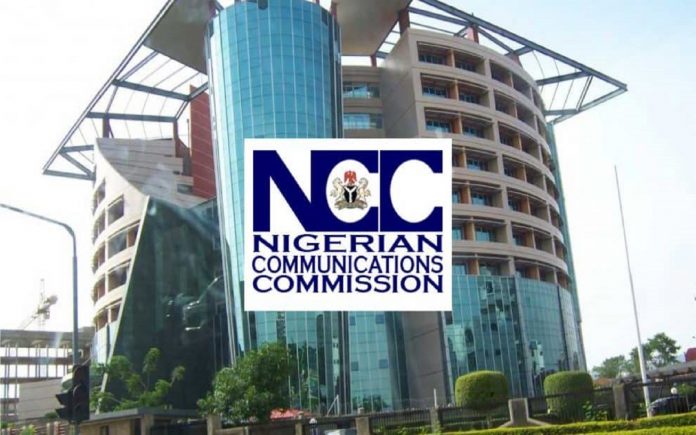The new Executive Vice Chairman of the Nigerian Communication Commission, NCC, Dr Aminu Maida has expressed his administration’s commitment to a diligent implementation of the broadband strategy to ensure everyone is carried along, through improved access to quality and affordable broadband, and upgraded critical services and work collaboratively to catalyze a digital transformation that impacts our entire population.
Maida said this will be achieved by continuing to ensure diligent implementation of our broadband strategy to ensure that everybody is carried along as the Commission ensures effective management of our spectrum resources as pathways for the growth of new and emerging technologies, improvement of businesses and seamless access to government services.
In making the pledge he calls on all necessary stakeholders to join hands with the Commission as it discharges its regulatory mandate towards building robust and resilient broadband infrastructure that supports the potential of the growing data revolution to drive our collective prosperity in Nigeria.
The EVC makes the pledge while delivering the keynote on the theme, “Broadband Availability and Potentials of Data Revolution” on the occasion of the 13th Annual Nigeria ICT Impact CEO Forum/Africa Digital Award.
The theme of this year’s edition presented yet another opportunity for the NCC to share thoughts and ideas with industry stakeholders concerning the prospects and challenges confronting our march to achieving ubiquitous broadband connectivity across the nooks and crannies of Nigeria.
Mr Reuben Muoka, the Commission’s director of public affairs presented the paper on behalf of Dr Maina.
Broadband or high-speed Internet access allows users to access the Internet and Internet-related services at significantly higher speeds than those available through “dial-up” services.
The digital revolution has brought about changes to how businesses and economies operate. Most developing economies are now catching up with the trend and investing significantly in areas of information technology and wireless communications.
Maina said the Commission’s focus in the next four years and beyond under the current administration aligns strictly with the vision for the digital economy, as envisioned in the Strategic Plan of the Minister of Communications, Innovation and Digital Economy, Dr. Bosun Tijani.
The Strategic Blueprint, unveiled in October 2023 has five pillars and prioritizes deployment of broadband infrastructure and digital empowerment of 3 million Nigerian youths, among others.
“One of the five pillars of the Strategic Blueprint is the “Infrastructure” component, which focuses on broadband accessibility, availability and affordability. Other pillars of the Ministerial strategic plan are Knowledge; Policy; Innovation/Entrepreneurship and Capital; and Trade.
“The Strategic Plan is designed to drive a major part of the overall implementation of the Renewed Hope Agenda of President Bola Tinubu, GCFR.”One of the five pillars of the Strategic Blueprint is the “Infrastructure” component, which focuses on broadband accessibility, availability and affordability. Other pillars of the Ministerial strategic plan are Knowledge; Policy; Innovation/Entrepreneurship and Capital; and Trade. The Strategic Plan is designed to drive a major part of the overall implementation of the Renewed Hope Agenda of President Bola Tinubu, GCFR.
“The NCC, under my leadership, will support the target of the Ministry to boost Nigeria’s broadband penetration rate to 70 per cent by the end of 2025 in line with the NNBP 2020-2025, through the laying of 95,000 kilometres of fibre optic cables across the country”, Maida said.
In the same vein, and in line with the vision of the Ministry, we are targeting the provision of coverage of, at least, 80 per cent of the country’s population, especially the underserved and unserved populations by the end of 2027; we also intend to secure between 300-500 per cent increase in broadband investment by the end of 2027; while we work to reduce the gap of unconnected Nigerians in rural areas from 61 per cent to less than 20 per cent by 2027.
“Other key targets in the Strategic Plan of the Ministry, which has adopted a clear-cut strategy to transform Nigeria’s digital economy sector and to which the NCC is committed, include the plan to deliver data download speed of 25Mbps in urban areas and 10Mbps in rural areas by the end of 2025; achieve a 50 per cent improvement in quality of service (QoS) by 2024; 22 per cent increase in net GDP contribution by digital economy by 2027 as well as increase in investment into Nigeria’s telecommunications sector by 15 per recent year-on-year.
“The Ministerial blueprint also targets 70 per cent digital literacy by 2027; a capital increase raised by Nigerian tech startups by 50 per cent year-on-year from $1 billion/year in 2022 to $5 billion/year in 2027; and achieving 25 per cent domiciliation of local technology startups by 2027. Other expectations are to accomplish Nigeria, 60 per cent government data digitization by the end of 2026; the creation of 50,000 Artificial Intelligence (AI) industry jobs by 2026 while also ensuring the accomplishment of 22 per cent net GDP contribution by 2027, among others”, he concluded.










